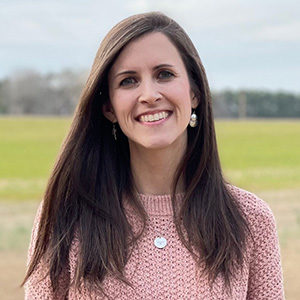
The thought of sitting across the room from a woman facing an unplanned pregnancy strikes fear in the hearts of many. Visions of a quiet room, hushed tones, heartbreaking stories, positive tests, and difficult decisions may cause anxiety or discomfort. To be honest, this fear isn’t unwarranted. As a woman who has worked in the pregnancy resource center (PRC) world in a variety of capacities for the past 10 years, I’ve seen firsthand how serious and intense the frontlines of a PRC can be.

Staff and volunteers willingly walk into a difficult but essential ministry every day, committed to speaking truth in love to women who are either desperate to hear it or determined to reject it. These workers stand in the gap to advocate for life within the womb and for the mothers who carry those lives. Make no mistake: what’s happening behind those closed doors is life and death.
But in an attempt to paint an accurate picture of the life-changing work happening at PRCs, churches unwillingly—perhaps, unknowingly—may be discouraging their members from connecting with pregnancy centers at all.
Your congregation is filled with women who would go weak in the knees at the thought of closing themselves in a room with a mother who is considering abortion. Their hearts may be burdened to stand for life, but the knee-knocking, white-knuckled anxiety of what “could” or “might” happen keeps them glued to the sidelines.
Meanwhile, the other half of your congregation may believe this is a ministry in which they have no place. After all, what could men possibly have to offer in this woman-focused mission field?
The beauty of the Church of Christ is that there are many parts, but one body (1 Cor. 12:12). Every member of the body has a unique, purposeful, and invaluable role to fill.
Because abortion is a gospel issue, the Church must rise up to address it at all costs.
Not only is there room for everyone in the pro-life movement, but there is a desperate need for everyone—male, female, young, old, confident, fearful—to step off the sidelines and find their place within this movement.
And at The Pregnancy Network (TPN) in North Carolina, people are rushing off the sidelines in droves.
“For many years, we struggled to have volunteer involvement beyond the core group who served as peer advocates,” said Allison Herrington, director of partnerships. “Peer advocates” refers to the trained volunteers who meet with women during their appointments to discuss options and offer the hope of the gospel message.
Herrington noted, “It wasn’t until we changed the narrative about what it means to get involved and make a difference in the pro-life movement that we started to see a shift.”
“We recognized that there was a complete subset of untapped potential within the church,” said Hope Earwood, director of development and communications. “When we started talking about how everyone has a part to play in this story—about how we needed people from all skill sets and backgrounds—we realized just how creative partners and volunteers could be.”
Women and men who previously had written off their abilities to connect with the mission of a pregnancy resource center now found themselves using their unique talents and abilities to serve.
Practical ways to serve
What does this look like on a practical level?
- setting up classrooms
- preparing food
- organizing
- sorting baby items and donations
- writing notes of encouragement for mothers,
- distributing class incentives,
- cleaning offices,
- greeting clients
Herrington pointed out they have volunteers doing a variety of things including:
In addition, they have:
- women who use their time in school carlines to make phone calls to potential event sponsors;
- men with infant CPR and other professional certifications teaching sessions for our parenting classes;
- partners who donate funds to cover costs of billboards and other marketing tools to reach more clients;
- women who serve as mentors, make baby blankets, assist with mailings;
- and men who help set up and break down at events, and mobilize their small groups to assist with special projects.
“Every volunteer is so flexible and willing to do whatever we need,” said Kimberly Gay, client services coordinator. “No matter what the task, people come faithfully and serve. And I believe it’s because we all want the same thing: to glorify God, love women, and protect life.”
“Our message to our community is simple,” said Earwood. “No matter where you serve, every person makes an impact on the life of another. You have a vital role to play in this mission. And there is a place for you here.”
Steps your church can take
So if your church wants to get more involved in the pro-life movement but isn’t sure where to start, what is the first step?
If your community has a local PRC (and it probably does), I guarantee they would welcome your involvement with open arms. Take the initiative to invite a representative from that PRC to speak with you and your church leaders about their needs.
Consider the unique strengths of the individuals in your church. Is your church filled with stay-at-home mothers? Empty nesters? IT gurus? Graphic designers? Writers? Businessmen and women? Event planners? The answer is almost certainly “yes” to all of these, and every last person in your congregation can serve in some capacity.
Something beautiful happens when a wave of individuals from different backgrounds, skill sets, and comfort zones unites around a common mission and purpose. When the body of Christ refuses to remain passive and complacent about putting the Word into action, and instead rallies around women in unplanned pregnancies by mobilizing every possible resource they possess, well—that’s when mothers will believe us when we say we value all life.
That’s when we live out our conviction that abortion is a gospel issue. And that’s when abortion can truly become unthinkable.






















